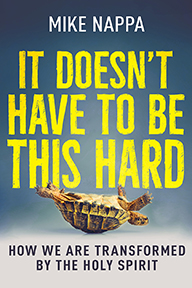A Marketing Team reason for rejection
“For sale: baby shoes, never worn.”
Only six words, but they evoke the gamut of emotion in the reader: Curiosity, tenderness, joy, and sorrow.
In fact, this is a complete short story written by Ernest Hemingway, and one that he called his best work. Well, with that kind of skill, Papa Bear must have made his Marketing VP proud indeed.
Now, you don’t have to be a legendary writer of fiction in order to succeed with your latest pitch to a publisher—but you should be able to quickly, succinctly evoke the desired emotions when talking about your book. This will happen primarily in the content summary section at the beginning of your proposal. And, unlike Hemingway, you have much more than six words use! But you’d better be able to do this quickly, most likely in 50-60 words (or less).
Why is it so important to be able to evoke desired emotions when talking about your book? Because emotion dictates decision-making. Neuroscientist, Benedetto de Martino, is just one of many researchers to confirm this connection. After his lengthy experiment on decision-making among gamblers, he reported, “We found that everyone showed emotional biases; no one was totally free of them.”
In How We Decide, Jonah Lehrer chronicles medical studies on patients with damaged emotion centers in the brain to arrive at the conclusion that “emotions are a crucial part of the decision-making process…a brain that can’t feel can’t make up its mind.” So, in the content summary at the beginning of your proposal, you’ve got about 60 words to make the brains of your editor, Marketing VP, and sales VP feel the right emotions that will prompt them to buy your book. Use those words wisely, and you’ve just increased your chances of actually making it to the next publishing board meeting.
What You Can Do About It
1. Take charge of your reader’s emotions.
Of course, in the case of your content summary, your readers are the editor, Marketing VP, and Sales VP—but since you know who they are that gives you more power than you likely have used in the past. When composing your content summary, read past the words and into the emotions those words evoke. Take charge of what your reader will feel when he or she first encounters the quick description of your book.
For instance, are you selling a book about solutions to dolphin de-population in the Pacific Ocean? Then you’ll probably want to open with a statement that evokes concern in the reader (“When all the dolphins are gone, humanity will be next in line.”) Then you’ll want to move into a statement that brings relief and/or optimism (“But that’s not going to happen while you’re around.”) And you’ll close with a line that sparks enthusiasm and/or heroic impulses in your reader—and which maximize your book’s importance in those feelings (“This book will show you how to save the dolphins…and save your world.”)
2. Be careful not to unintentionally evoke the wrong emotion.
We live in a politically correct world, and that means paying attention to potentially offensive terminology (unless, of course, your intent is to offend). Regardless of how you feel personally about political correctness, it makes no sense to offend when you don’t have to do so.
If you open your summary by casually referring to the Holocaust as myth, for instance, you’ve immediately irritated a majority of your readers. If you use a word like “niggardly”—even though this word refers to being miserly and has nothing to do with a common racial epithet—many will still feel anti-racist sentiment toward you and your work as a result.
So, as you’re writing to evoke desired emotion, be careful that your words don’t unintentionally evoke the wrong emotion.
3. Pay attention to how you feel.
Try this creative exercise for writers. First, list seven motivating emotions, such as anger, curiosity, excitement, and so on. Then assign each emotion to one day of the week.
Take a notepad with you as you go through your week, and every time you feel that day’s assigned emotion, jot down the circumstances or catalyst that prompted that emotion to surface in you. This could be something as simple as watching a beer commercial or being cut off in traffic.
At the end of the week, review your journal entries and ask yourself, “What principles can I learn about evoking emotion from these experiences? And how can I use those principles to evoke emotion when I’m talking about my book?”
Looking for more? Check out these links:









